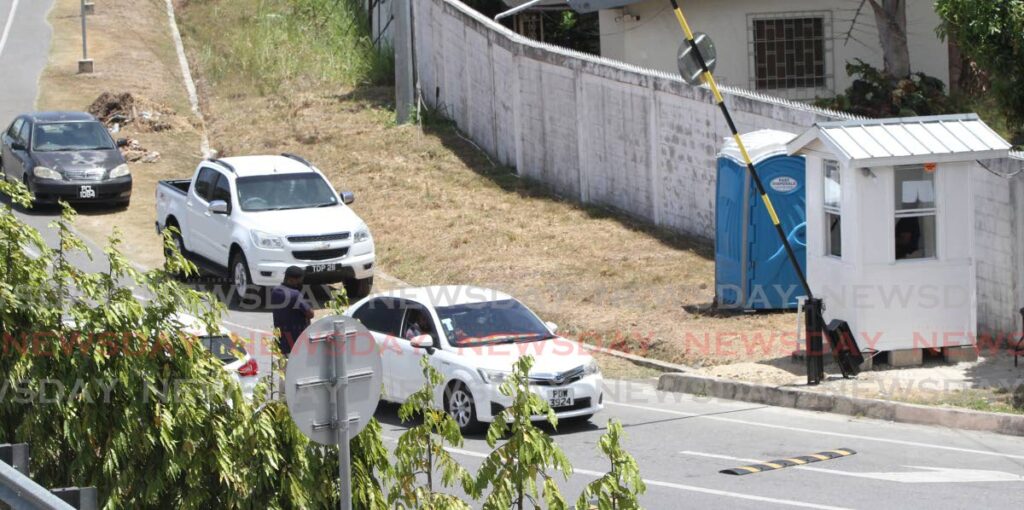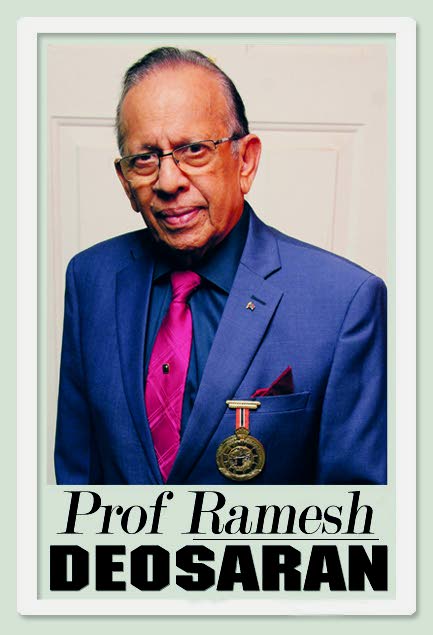Kamla’s war on the invaders

In the midst of current murder rate (195) heading to beat last year’s record of 605 and rising public fears over “home invasions,” Opposition Leader Kamla Persad-Bissessar, seizing the moment, plugged in a “pro-victim” proposal.
That is, as she described, “stand your ground” legislation. This means giving potential “invader victims” the “absolute right” to defend themselves, to fight back with whatever means to defend themselves and homes against violent attackers – a right which current trespassing and self-defence laws do not provide. However, it is challenging to provide the “self-defence” proportionality and the “reasonableness” required.
From the UNC platform on April 24, the Opposition Leader declared “war against the invaders.”
“Quite soon, I will be presenting a private motion on ‘stand your ground’ and also calling for a 25-year penalty for invaders.” She then pleaded: “Give us support for these proposals…with each passing day, the situation is getting more and more grim.” (loud applause).
Now as Opposition Leader, she does have a big public voice. However, success of her proposal depends on parliament. If the UNC severely criticises the government, naturally, there would likely be political resistance. If on the other hand, the motion is presented as a public interest objective, with logic and balance in its contents and some “home invasion” examples, the wide partnership required would be achieved. More so, such approach could open the doors for bipartisan negotiation on other related legislation. The public may be inspired to see its parliament fulfilling its constitutional mandate.

The UNC motion could be rejected for being “too extreme” ; or adopted with government amendment; or sent to a Joint Select Committee after extensive debate over rights, reasonable force, etc.
Of course, in softer voice, I must admit my interest. I long had serious concerns about these murderous night-and-day home invasions. So last July in an Express interview, among other things I advised: “While many citizens ‘celebrate’ the fatal shooting of two men from a gang of home invasion bandits in Mayaro, it seems necessary now for the Government to review the laws governing self-defence and trespassing to the advantage of business places and home-owners.”
I further advised that under current laws “businessmen, proprietors, farmers and other lawful citizens using guns 'to defend themselves' will likely find themselves as well before the court.”
The very next day widespread support for the proposal was carried both in the newspaper and social media with many blaming government “for doing nothing.”
James Silva uncharitably wrote: “The reasons why these ministers don’t care is because they are all protected by private security, and who pays for it?”
Benet Thomas stated: “Criminals have access to guns as if it were a sweetie parlour. Come on, at least level the playing field or we’ll be at the mercy of criminals. We already build our homes as if they are cells in a police station.”
Of course, while any intended legislation cannot go way overboard, citizens’ fears and anger must be appreciated.

Nevertheless, still troubled and noting the loud appeals by business and other citizens for “guns to protect themselves from these bandits,” I said in a Guardian interview (April 1): “There is, therefore, an urgent need, alongside the granting of firearms, to seriously and carefully consider a review of the 1852 Trespass Act as well as the Offences Against the Person Act (as amended) to improve the rights of victims under bandit threats, immediate injury or death for a more judicious balance.”
This proposal again drew substantial public support for the improvement of victims’ rights when under serious physical threat. Letter writer E. Galy wrote: “Bring on those laws. I would like to see the Attorney General bring ‘stand your ground’ legislation that requires a constitutional majority.”
There was also Gary Aboud, who wrote: “We are living in a state of civil war. There are more casualties with murders, home invasions and brutalisation of the vulnerable and innocent than ever before. Who in their right mind would want to invest for the future here?”
Such fears do not make life and living comfortable. Last week, after a violent incident in Penal with three men “executed,” the rest of the grieving family moved out of the home. On a cordial note, Louis W. William wrote: "I would like to suggest that Dr Rowley invite Mrs Persad-Bissessar and a small team to discuss this (home invasion) matter…We are at war with the perpetrators of violent crime. This is no time for partisan bickering.” Meanwhile there were “home invasions terrors” reported in Valsayn, Aranguez and Couva.
A test of democracy is making laws in response to widespread public concerns. When done so it gains public confidence both in the legal system and government. Hence our Constitution (Section 53) states: “Parliament may make laws for the peace, order and good government of TT.” Serious crimes, especially murders and home invasions, violate citizens’ several constitutional rights (Section 4): To life, liberty, security, enjoyment of property, for privacy and family life, freedom of movement and assembly.
To help secure their citizens’ public safety and democratic rights, many countries considered laws which increased citizens’ self-defence action – defending their homes and family (Stand your ground or Castle doctrine) signifying the sanctity of a citizen’s home. Twenty-seven states in US have varying degrees of “stand your ground” while 13 put more emphasis on “retreating” safely unless harm is totally unavoidable. Who is to prove?
These laws, as they would be if enacted here, comprise as much psychology as law. For example, pure “stand your ground” laws require a homeowner to subjectively judge whether to retreat rather than use deadly force. Some restrictions are: the perceived threat must be “objectively reasonable” with the use of force “proportional” to the threat. Quite a psychological challenge.
Some US state laws do not require homeowner to retreat if attacked at home. All in all, these are issues of perception, reasonableness, feelings of danger, etc which can be very troublesome to deal with in court. Hence some laws require no retreat from a threatening invader. More challenging is when the burden of proof is placed on the homeowner rather than on the perpetrator. Canada and the UK currently face their own challenges.


Comments
"Kamla’s war on the invaders"